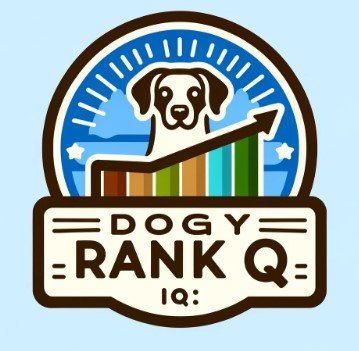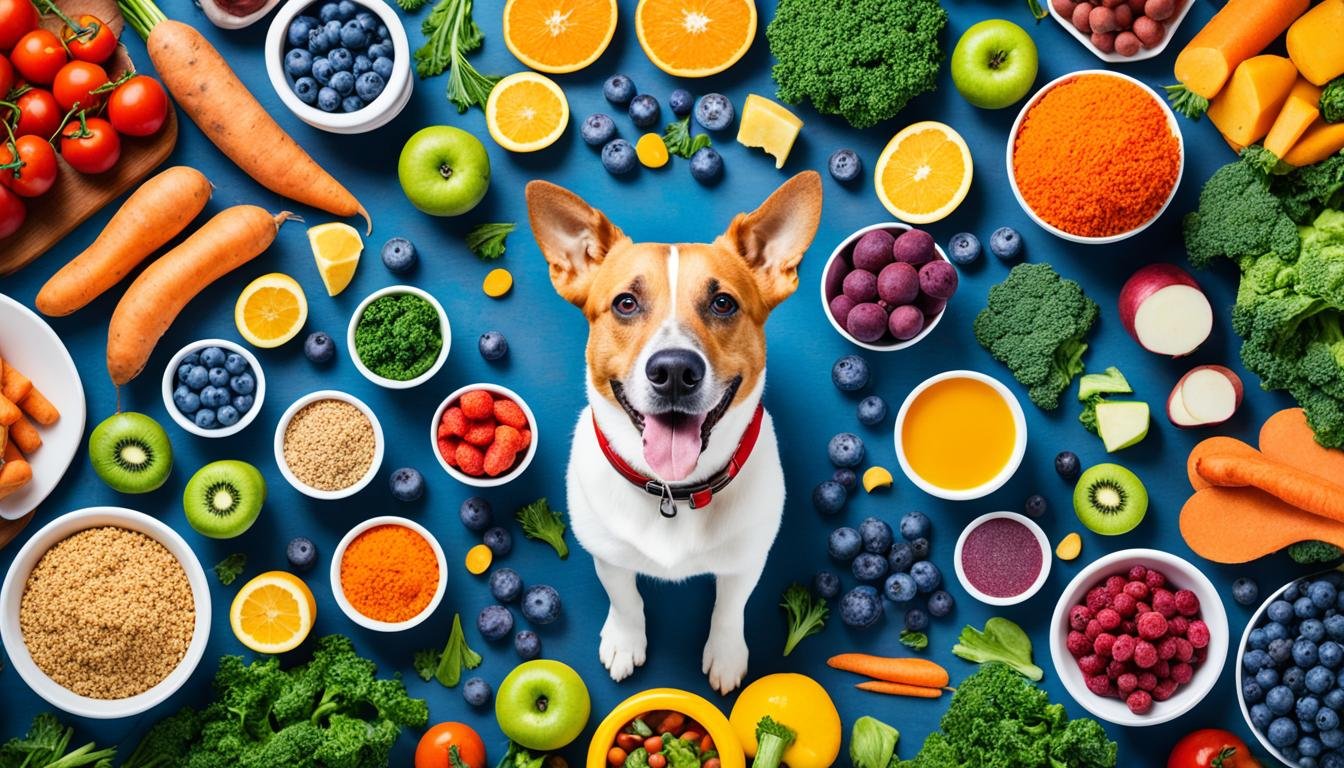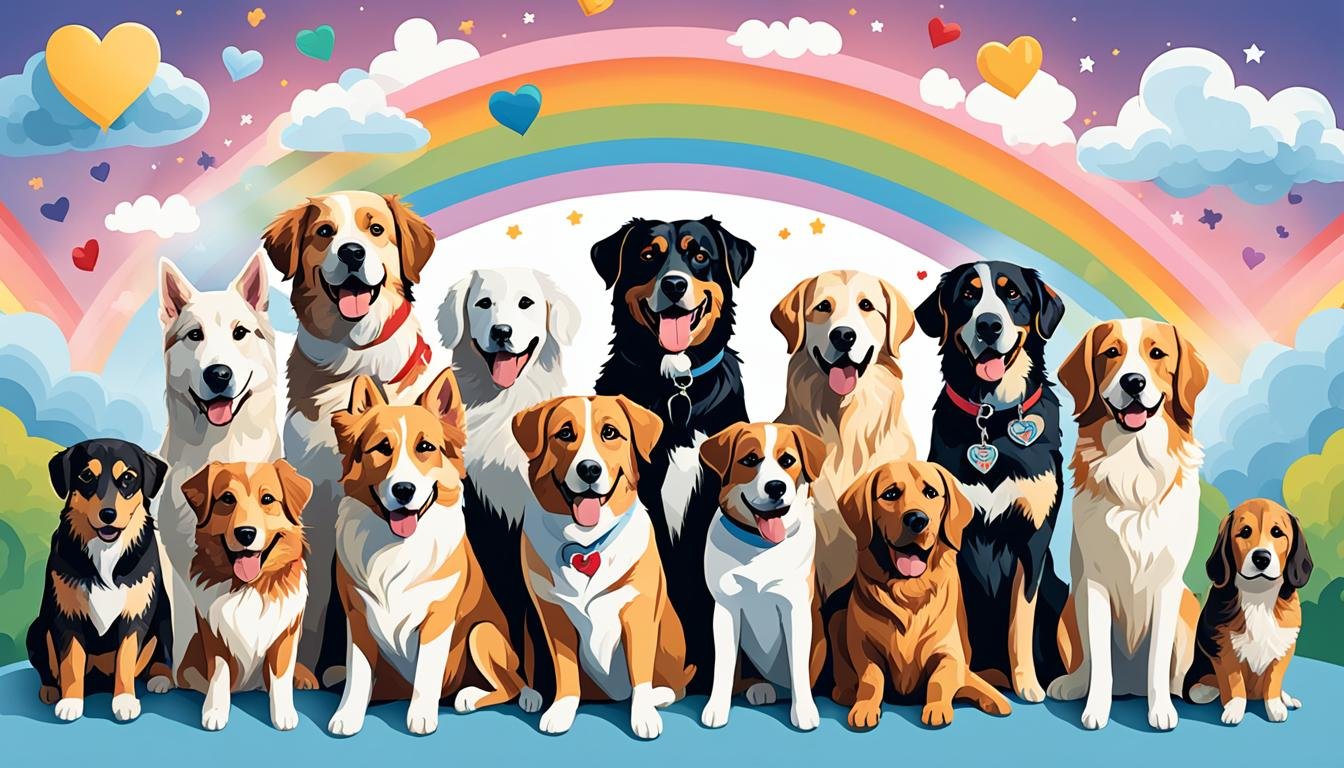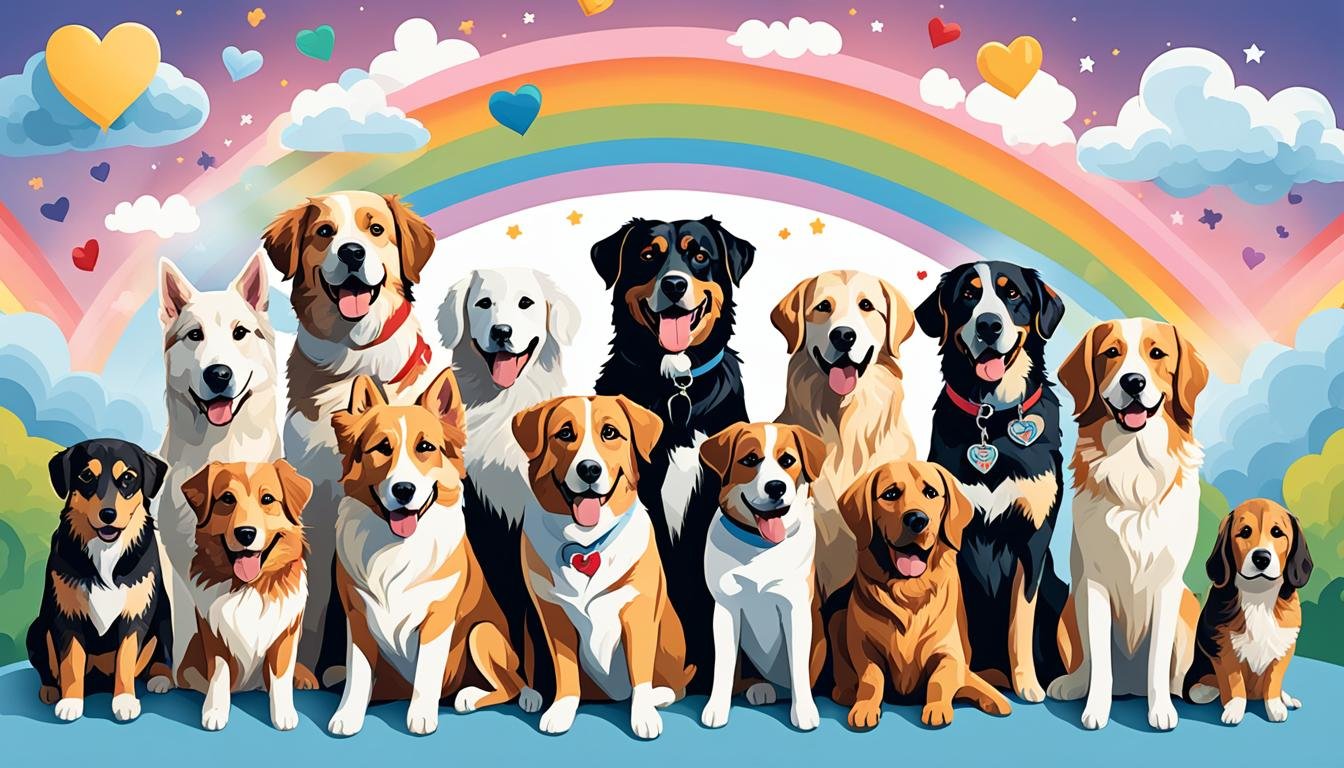According to Purina.com, domesticated dogs are categorized as omnivores, unlike wolves and cats, and therefore can digest food from both animals and plants. This fact may surprise many pet parents who love sharing food with their pups. As you consider giving dog-friendly treats during brunch, lunch, dinner, a picnic, or a BBQ, you may ask yourself, “what human foods can dogs actually eat?” Or better yet, which of the people food that dogs can eat will give them the most health benefits? To help you decide on the healthiest food items to share with your pup, this complete Ultimate Guide to the Top 10 Healthiest Foods for Dogs lists the healthiest people food that dogs can eat. Some of the food items listed here can also be used as food toppers for dog food that will help picky eater dogs eat.
Key Takeaways
- Domesticated dogs are omnivores, unlike wolves and cats, and can digest food from both animals and plants.
- Common canine food allergies can be triggered by proteins such as beef, chicken, eggs, fish, and dairy.
- Cooked, unseasoned chicken is considered the most balanced meat for dogs, being high in protein and low in fat.
- Eggs, pumpkin, green beans, carrots, and spinach are among the healthiest treats for dogs.
- Apples and bananas can be healthy treats in moderation due to their natural sugar content.
Understanding Dogs as Omnivores and Common Allergies
Unlike wolves and cats, domesticated dogs are omnivores. In that sense, they are similar to us humans. Omnivores are naturally able to eat and digest food that comes from both animals and plants. This, however, doesn’t mean that dogs can safely eat all the types of food that people can. What this does mean is that the range of healthy treats for dogs is wider than that of obligate carnivores who are not naturally equipped to digest vegetation (sorry, cats!).
Dogs are Omnivores
Because dogs are omnivores, it means that some dogs naturally enjoy fruits and vegetables — especially the ones on this list of healthy food for dogs. Dogs can eat cooked vegetables with no pureeing needed. The best way to cook veggies for dogs is by steaming or boiling without any additional oil, butter, or spices — and Fido would prefer these cut up in bite-sized pieces.
Food Allergies in Dogs
The go-to treats for dogs are usually meat-based food items from the table. However, not all types of meat are safe for all dogs. Some dogs have food allergies — and the most common ones are triggered by different types of proteins. The most common canine food allergens include beef, chicken, eggs, fish (or seafood), and dairy (canine allergy to dairy is a different condition from canine lactose intolerance).
The Top 10 Healthiest Foods for Dogs
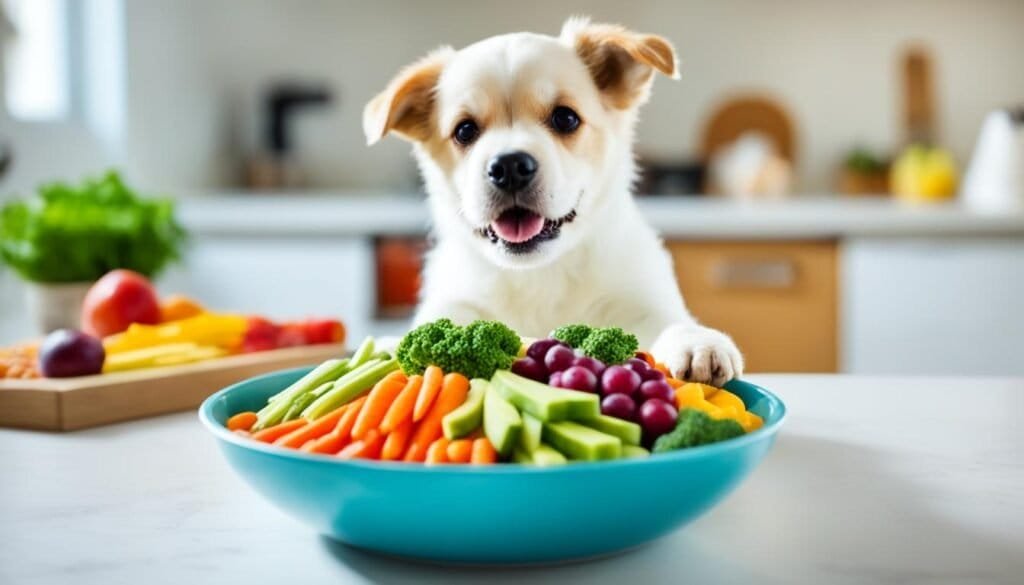
When it comes to providing your canine companion with the most nutritious treats, consider incorporating a variety of dog-friendly proteins, vegetables, and fruits into their diet. From cooked, unseasoned meats to fiber-rich produce, these healthiest foods for dogs can offer a wealth of benefits for their overall health and wellbeing.
Cooked, Unseasoned Chicken, Turkey, or Beef
Cooked, unseasoned chicken, turkey, and beef are all great sources of protein for your dog. However, make sure that all the bones are removed from these meats before giving them to your dog. Doing so reduces the risk of choking. Among the three (chicken, turkey, and beef), the most balanced meat is chicken — as it is high in protein but also low in fat which makes it the healthiest type of meat to serve canines.
Cooked, Unseasoned Fish
Cooked unseasoned fish is one of the healthiest treats for dogs. Fish is a good source of protein and omega-3 fatty acids for dogs.
Cooked, Unseasoned Eggs
Whether hard boiled or scrambled, cooked eggs can be a good treat to share with your canine buddy. Eggs are a great source of protein, vitamin D, selenium, and riboflavin.
Cooked Pumpkin
Cooked and chopped-up pumpkin is a healthy and nutritious snack for dogs. It is a good source of fiber and beta-carotene, which can help with digestion and improve the appearance of your dog’s coat.
Cooked Green Beans
Cooked green beans are a good source of fiber, vitamin C, and other nutrients that can help support your dog’s overall health.
Cooked Carrots
Cooked and chopped carrots are healthy treats for your dog. Cooked carrots are a great source of fiber, vitamin A, and beta-carotene.
Cooked Spinach
Cooked spinach is a great source of fiber, vitamin A, vitamin K, vitamin C, and potassium.
Sliced Apples – In Moderation
Most dogs actually like the taste and the CRUNCH of a fresh apple. Chopped apples are an excellent source of vitamin A, vitamin C, and fiber for your dog. However, apples should be given in moderation.
Bananas – In Moderation
Many dogs LOVE bananas. Bananas are healthy treats for dogs because they are high in potassium, fiber, and magnesium. However, bananas need to be given in moderation because of their high natural sugar content.
Cooked Oatmeal
Cooked oatmeal contains vitamin B, which helps maintain a healthy coat, and linoleic acid, which is a type of omega-6 fatty acid that helps to maintain the strength of dogs’ skin.
Ultimate Guide to the Top 10 Healthiest Foods for Dogs
We hope you enjoyed this list of the healthiest human foods that dogs can eat. As a reminder, dogs need a balanced diet, and the above treats (by themselves) are not enough to provide all the nutrients dogs need. The treats on this list are not meant to replace high-quality commercially available dog food that is nutritionally complete. As always, if you have questions or concerns about your pup’s nutrition or health, we are here to help!
| Leading Types of Meat Recommended for Dogs | Cooked, unseasoned chicken, turkey, and beef |
|---|---|
| Most Balanced Meat Type for Dogs | Chicken, known for being high in protein and low in fat |
| Common Allergens for Dogs | Beef, chicken, eggs, fish (seafood), and dairy |
| Common Canine Food Allergy Trigger | Different types of proteins, such as those from beef, chicken, eggs, fish, and dairy |
| Top Recommended Healthy Food Treats for Dogs | Cooked chicken, turkey, beef, fish, eggs, pumpkin, green beans, carrots, spinach, apples, bananas, and oatmeal |
| Moderation Consideration for Dog Treats | Apples, bananas, and other fruits should be given in moderation due to their high natural sugar content |
| Mentioned Health Benefits for Dogs | Protein sources, omega-3 fatty acids, vitamins (vitamin D, vitamin A, vitamin C), fiber content, beta-carotene, and essential nutrients found in the recommended food items |
| Note | While these treats provide health benefits, they should not replace a nutritionally complete dog food diet |
| Dog Food Popularity in America | More than 60% of all dog food sales in America are accounted for by kibble or dry food, which is the most popular type due to its convenience and affordability |
| Recommended Limit for Cooked/Raw Food Additions | It is recommended to limit additions of cooked or raw foods to a maximum of 25% of the total calories fed to dogs each day to avoid unbalancing the diet |
| Recommended Egg Serving for Dogs | Feeding eggs to dogs is suggested, with half an egg for dogs weighing 20 to 40 pounds recommended |
| Beneficial Fish Options for Dogs | Fish like canned sardines, jack mackerel, and pink salmon are beneficial additions because they provide fatty acids and trace minerals |
| Fermented Dairy Products for Dogs | Homemade or manufactured fermented dairy products like yogurt or kefir, free of sugar or xylitol, can help with digestive issues in dogs |
| Recommended Pumpkin Serving for Dogs | Small amounts of canned pumpkin are recommended for digestive aid in dogs, with a suggestion of 1 teaspoon per 10 pounds of body weight once or twice per day |
| Recommended Green Tripe Treat for Dogs | Green tripe from grass-fed cattle is highly recommended as a treat, limiting it to 25% or less of the dog’s daily caloric intake if feeding a dry diet |
| Caution with Raw Bones for Dogs | Raw bones can be given to dogs as a dessert after dinner for dental health, but caution should be taken with bones that can splinter and cause issues if swallowed |
| Recommendation on Cooked or Dry Bones | Cooked or dry bones in dog diets are not recommended as they can splinter and cause harm |
| Suggested Resources for Incorporating Fresh Foods | Different resources and books such as “Unlocking the Canine Ancestral Diet” by Steve Brown are suggested for those looking to incorporate fresh foods into their dog’s diet |
The Role of Dog Food Toppers

Dog food toppers can play a significant role in enhancing your canine companion’s overall nutrition and well-being. These versatile additions to your dog’s meals can provide a range of benefits of dog food toppers, from boosting flavor and aroma to delivering essential vitamins, minerals, and other beneficial nutrients.
Benefits of Dog Food Toppers
Healthy dog food toppers like canned pumpkin, fresh vegetables, sardines, and blueberries can introduce a variety of nutritional powerhouses to your dog’s diet. Pumpkin, for instance, is widely considered a superfood for dogs due to its high fiber and micronutrient content. Blueberries, on the other hand, are rich in antioxidants and provide a healthy dose of vitamin C and fiber. Canned sardines offer an excellent source of omega-3 fatty acids, which can help reduce inflammation and promote skin and coat health.
Necessity of Toppers for Dog Food
While dog food toppers are not strictly necessary for a balanced diet, they can be a great way to add variety and supplemental nutrition to your dog’s meals. Many commercial dog foods, especially kibble, can be deficient in certain nutrients due to processing methods. Toppers can help fill these nutritional gaps, particularly for picky eaters whose enthusiasm for their regular food may wane over time. Certain toppers are even formulated to address specific health concerns, such as joint health, skin and coat condition, digestive health, and weight management.
Best Dog Food Toppers for Picky Eaters
For dogs that may be picky eaters, dog food toppers can make mealtime more enticing and appetizing. Ingredients like eggs, bone broth, and freeze-dried or dehydrated proteins can add flavor, texture, and aroma to your dog’s food, encouraging them to eat more. Prepared meal toppers like Green Juju offer a convenient way to add a variety of nutrients, including green vegetables, bone broth, and turmeric, to your dog’s diet. When introducing new toppers, it’s important to start with small amounts and gradually increase to identify any potential allergies or intolerances.
Remember, before making any significant dietary changes, it’s always best to consult with your veterinarian, especially if your dog has pre-existing health conditions. With the right dog food toppers, you can enhance your canine’s nutrition and overall well-being, while also catering to their individual preferences and needs.
Conclusion
In conclusion, this ultimate guide has provided a comprehensive overview of the top 10 healthiest foods that dogs can enjoy as treats or additions to their meals. From protein-rich meats and fish to nutrient-dense fruits and vegetables, these options offer a wealth of benefits for your canine companion’s overall dog nutrition and canine diet. Remember to introduce new foods gradually, monitor for any allergic reactions, and always consult your veterinarian if you have specific concerns about your dog’s dietary needs. With the right balance of high-quality dog food and occasional healthy dog treats, you can help ensure your furry friend lives a long, happy, and healthy life.
Throughout this guide, we have emphasized the importance of incorporating a variety of pet food ingredients, including dog-friendly fruits and vegetables, to provide your dog with a well-rounded and nutritious diet. Whether you’re interested in homemade dog food recipes or simply looking for nutritious dog snacks to supplement your pup’s meals, this information can help you make informed decisions to support your dog’s overall health and wellbeing.
As you continue on your journey to provide the best possible care for your canine companion, remember that a balanced diet, including the occasional grain-free dog foods or superfoods for dogs, can make a significant difference in their quality of life. By staying informed and working closely with your veterinarian, you can ensure your furry friend thrives and enjoys a long, happy, and healthy existence.
FAQ
What types of human food can dogs safely eat?
Dogs can safely eat a variety of human foods, including cooked, unseasoned chicken, turkey, and beef; cooked, unseasoned fish; cooked, unseasoned eggs; cooked pumpkin; cooked green beans; cooked carrots; cooked spinach; sliced apples (in moderation); bananas (in moderation); and cooked oatmeal.
Why are dogs considered omnivores, and how does that affect their diet?
Unlike wolves and cats, domesticated dogs are omnivores, meaning they can digest and derive nutrients from both animal and plant-based foods. This gives dogs a wider range of healthy treats and food options compared to obligate carnivores like cats.
What are the most common food allergies in dogs?
The most common canine food allergens include beef, chicken, eggs, fish (or seafood), and dairy. Dogs with these food allergies may have adverse reactions when consuming those protein sources.
How can dog food toppers benefit a dog’s diet?
Dog food toppers can provide additional nutrients, flavor, and variety to a dog’s meals. They can be especially helpful for picky eaters, as they can make the dog food more enticing and appetizing. Toppers can also be used to transition dogs to a new diet, such as from kibble to a raw food diet.
Are the human foods listed in this guide meant to replace a dog’s regular diet?
No, the human foods listed in this guide are not meant to replace a dog’s regular, nutritionally complete commercial dog food. These treats and additions are meant to be given in moderation as part of a balanced diet, not as a complete replacement for high-quality dog food.
